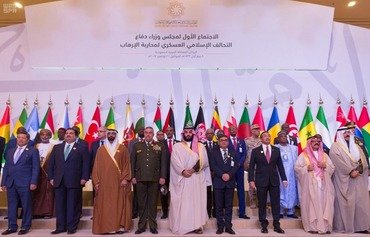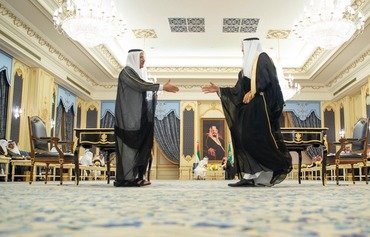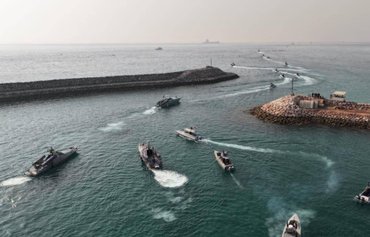Saudi Arabia and the UAE recently set up a co-ordination council which aims to boost co-operation between the two states in many fields and form a bulwark against regional challenges such as terrorism, analysts told Al-Shorfa.
The agreement was signed at a May 16th meeting in Riyadh, where Saudi King Salman bin Abdul-Aziz and Sheikh Mohammed bin Zayed Al Nahyan, Crown Prince of Abu Dhabi and Deputy Supreme Commander of the UAE Armed Forces, discussed regional conflicts and risks posed by terrorists and extremist groups.
In a joint statement, the two leaders said the council aims at continuous consultation and co-ordination in matters and issues of common interest in all fields, with periodic meetings to alternate between the two states.
The chairman of the new council may establish joint committees and appoint members to them when the need arises, the statement said.
Sheikh Mohammed said the bonds between the neighbouring states were based on the will to achieve security and stability in the region, noting that regional challenges such as terrorism require extra efforts and consultation .
"The general policy of the UAE and Saudi Arabia is currently based primarily on the principle of combating terrorism and maintaining security and stability in the region," said King Saud University political science professor Saleh al-Khathlan.
The new council is a significant step forward in that direction, he told Al-Shorfa, since counter-terrorism efforts require co-ordination at the highest levels.
The committees expected to emanate from the co-ordination council will form "a bulwark that protects the region from the extremist ideas that terrorist groups of all types are trying to spread in Middle East and world communities", he said.
The two states also partner in many other initiatives, he added, including those that denounce extremism, promote inter-faith dialogue and correct the misconceptions about Islam propagated by extremist groups.
Bilateral alliance against terrorism
The new council is expected to hold strategic and military weight as both states wield tremendous economic power in the region and the world, said UAE University political science professor Atiq Jakka.
This economic power can unlock the door to security co-operation, he told Al-Shorfa, which will have a positive impact on regional operations targeting the resources of terrorism.
The formation of the council, which could be considered a bilateral alliance at the highest level, serves as a strong message to terrorist groups lurking in the area which attempt to undermine security and sow sectarian strife, he said.
The region is in dire need of alliances like this that bring countries together, he said, in light of the multifarious political differences and numerous security issues stemming from terrorist threats.
"The aims are the same and the security challenges are the same, and the threats that either of the two countries could come under are common threats that are difficult to separate and deal with unilaterally," Jakka said.
Military and media co-operation
The tremendous economic power of the UAE and Saudi Arabia places them at the forefront of the fight against terrorism, said King Saud University political science professor Abdullah al-Dakhil.
The two states possess capabilities that enable them to take quick and decisive action to "strike down any potential terrorist threat", he said.
This includes media resources that are capable of combating the expansion of the extremists' media machine, the most powerful tool they deploy, he said.
Media and cultural co-operation existed before the announcement of the new council, as many Saudi media outlets are present in the UAE, as are many Emirati media professionals and journalists present in the kingdom, he said.
These outlets give the Gulf a foothold in the cultural and media war against extremist groups, and the "Islamic State of Iraq and the Levant" (ISIL) and al-Qaeda and its affiliates in particular, al-Dakhil said.

![UAE Deputy Secretary General of the National Security Council Ali al-Shamsi and Saudi Minister of State for Foreign Affairs Nizar Madani sign an agreement setting up a co-ordination council on May 16th in Riyadh. [Photo courtesy of WAM news agency]](/cnmi_am/images/2016/06/23/5659-Saudi-emirati-council-600_384.jpg)






